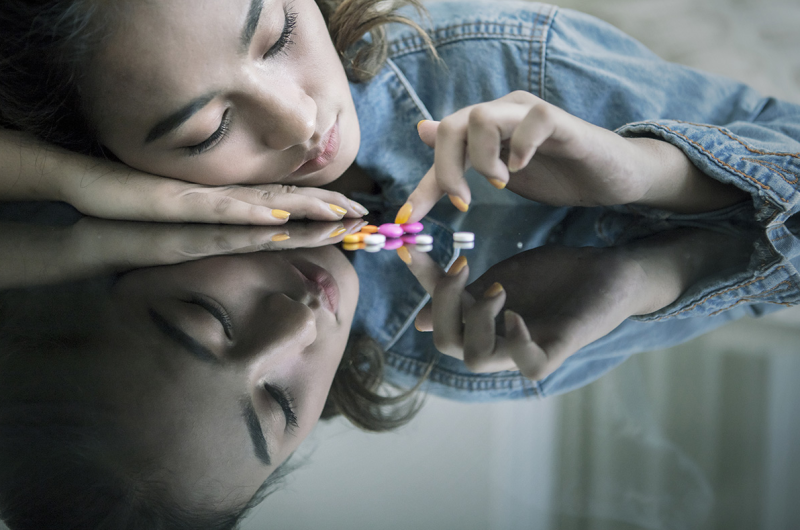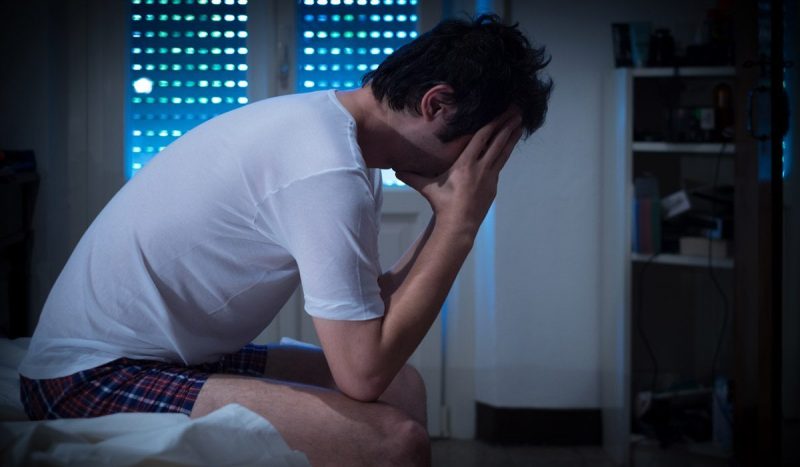
The group of drugs used to treat depression is quite broad. For this reason, you may have heard of some more than others, as is often the case with Prozac. Now, have you ever heard of Deprax? Do you know how it works and what specifications it has?
Deprax is a medicine used primarily to treat depression with the active substance trazadone. This, to be more exact, is an “antidepressant belonging to the SARI group; it is a serotonin reuptake inhibitor and a 5HT2 receptor antagonist.”
Contents
What is Deprax used for?
Deprax is a sedative antidepressant that causes drowsiness, especially at the beginning of treatment. Trazodone treats major depressive episodes and mixed states of depression and anxiety.

Trazodone controls depression but does not cure it. It may take two weeks or more for it to start working. Even if you feel fine, you should not stop taking the tracer suddenly, as you may experience withdrawal symptoms.
Deprax is also sometimes prescribed to people suffering from insomnia, anxiety, and schizophrenia. The latter is a mental illness that gives rise to altered and unusual thoughts, loss of interest in life, and intense emotions.
It can also be used to treat uncontrolled movements that are a side effect of treatment with other medications.
How to take trazodone?
The initial dose is 100-150 milligrams daily, divided into several doses after meals. The amount can be gradually increased to 400 milligrams per day. Another possibility is to take a single dose before bed.
Usually, the dose increase is 50 milligrams a day, every three or four days. When hospitalized, the dose can be increased to 600 milligrams a day, divided into several doses.
When the proper dose of Deprax is found, it is maintained for at least four weeks. Subsequently, the amount will be gradually reduced, depending on the therapeutic response.
Treatment will continue until the patient has been well for four to six months. The dose will then be gradually reduced until it is low enough to stop treatment.
What to do in case of overdose?
In case of overdose or accidental ingestion, consult your doctor immediately or go to the nearest hospital emergency department indicating the medication and the amount ingested.
Drowsiness, dizziness, nausea, and vomiting are the most frequent overdose symptoms. In more severe cases, the patient may enter a coma, seizures, hyponatremia (low sodium concentration in the blood), hypotension, tachycardia, and respiratory failure.
What if I forget to take a dose?
If you forget to take a dose, you should not take double to compensate for the missed dose. However, taking it as soon as you remember would be best. However, if it’s almost time for the next one, don’t take the one you forgot.

Possible Side Effects of Trazodone
Deprax can cause side effects like all medicines, although not everyone gets them. Go to the nearest doctor or hospital when you experience any of these effects:
- Swelling of the hands, feet, ankles, face, lips, or throat. It could be an allergic reaction.
- Painful erection of the penis, without intercourse that does not go away.
- Yellowing of the skin or eyes.
- Infections more frequently. This could be from a blood disorder ( agranulocytosis ).
You may also bruise more quickly than usual, possibly due to a blood disorder ( thrombocytopenia ).
Also, if there is pain and swelling of the abdomen, vomiting, and constipation, these may be signs that the intestine is not working correctly.
Other adverse effects of Deprax

You must contact your doctor if you notice the following side effects:
- Seizures or fits.
- Self-injurious thoughts.
- Difficulty breathing and walking.
- Loss of appetite and weight loss.
- Fluid retention, which can cause swelling of the arms or legs.
- Involuntary muscle movements, especially in the arms and legs.
- Rashes or unusual skin sensations include numbness, stinging, burning, or tingling.
- Feeling confused, restless, hallucinations, muscle twitching, and rapid heartbeat.
Trazodone is a medication that can be very useful in helping patients with depression. However, in low doses, it helps treat some sleep disorders, such as insomnia. However, in any case, it requires medical supervision to ensure its effectiveness.